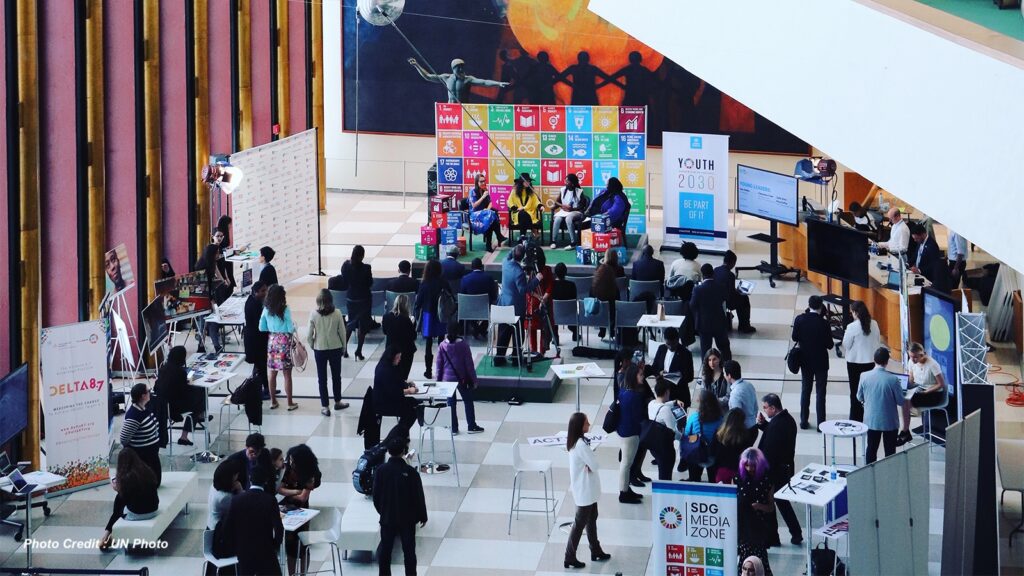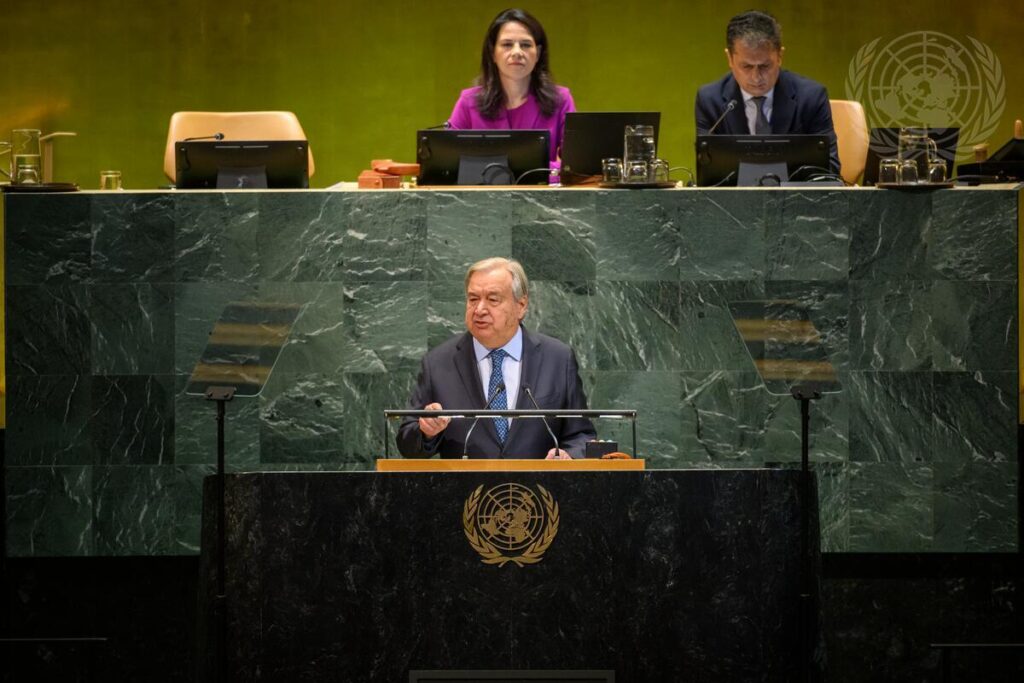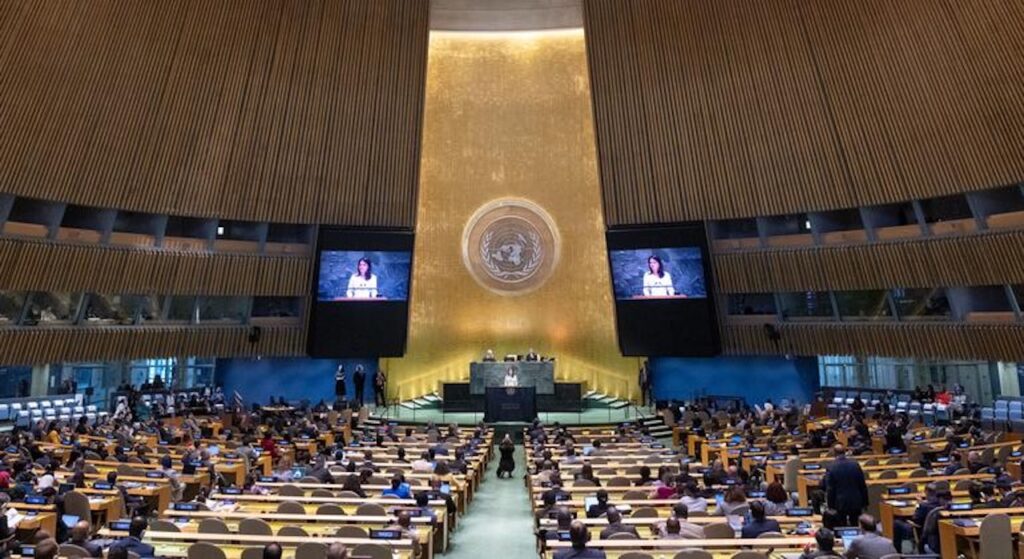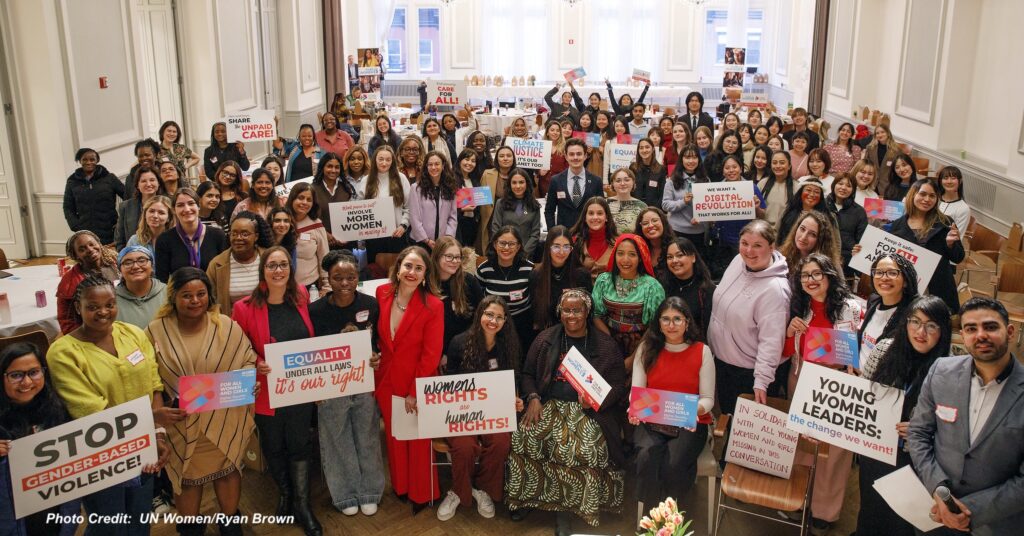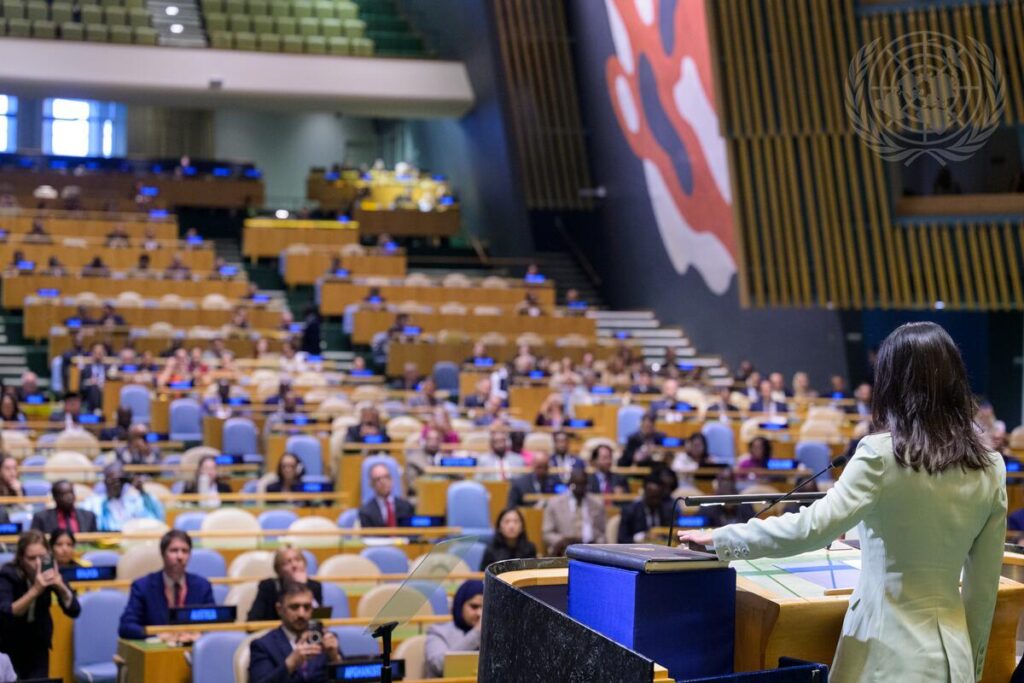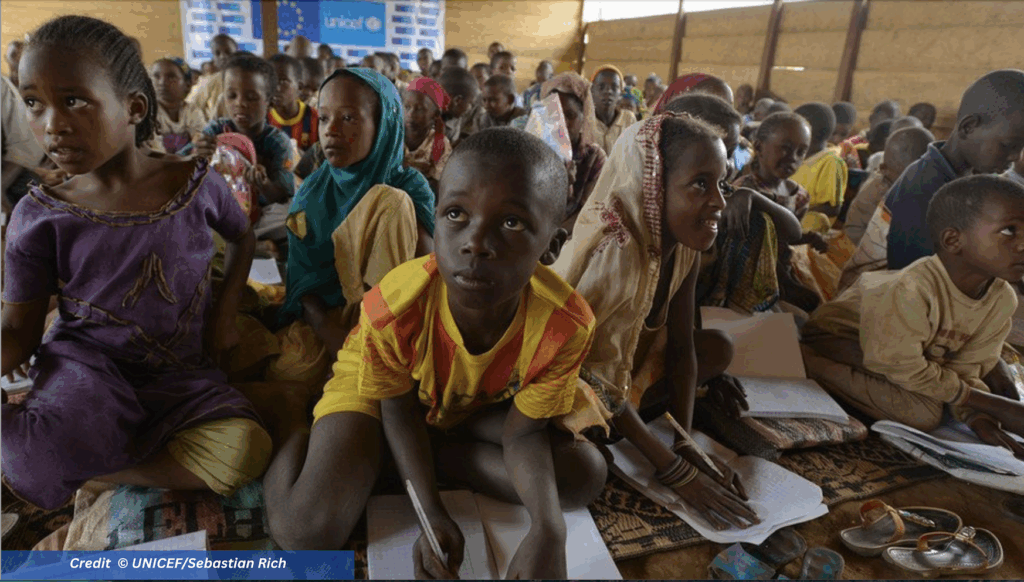A Decade Lost: No Peace, Justice or Inclusion Target on Track as 2030 Deadline Looms
Note: With progress on attaining the Sustainable Development Goals (SDGs) not only stalling but spiraling downwards, UN report highlights urgent reforms and innovations to restore peace, justice, and inclusion worldwide. Following is a press release from the UN Development Program (UNDP).
New York, 23 September 2025 – Ten years after world leaders adopted the 2030 Agenda, a new UN report finds that none of the 23 targets under Sustainable Development Goal 16 are on track. Moreover, 15 per cent of the Goal’s targets are regressing, based on a recent assessment by the UN Statistics Division.
The Global Progress Report on Sustainable Development Goal 16 released today by UNDP, UNODC, and OHCHR underscores the central role of peaceful, just and inclusive societies in advancing the United Nations’ founding vision.
Yet instead of progress, the past decade has brought surging conflict-related deaths, rising attacks on journalists and human rights defenders, and growing discrimination, leaving the world further from the vision of peaceful, just and inclusive societies than it was in 2015.
“The message of this report could not be clearer: without urgent investment in governance that is effective, accountable and inclusive, the foundations of our societies are at risk,” said Haoliang Xu, Acting Administrator of UNDP. “Restoring peace and rebuilding after conflict is not only about repairing infrastructure, but also about ensuring dignity, livelihoods, and the institutions that allow societies to govern themselves fairly and effectively.”
Disproportionate impact on women and children – Between 2023 and 2024, more than 21,000 women and nearly 17,000 children were killed in conflicts, a fourfold increase compared to the previous two years. Of these, 8 in 10 children and 7 in 10 women were in Gaza, reflecting the devastating impact of the war.
Globally, 2024 marked the third consecutive year of steep rises in conflict-related deaths of civilians and persons of undetermined status, representing a growth of 40 per cent compared to the previous year.
“These distressing figures reveal a stark deviation from the trajectory towards global peace, security and sustainable development,” states the report. “Immediate and concerted efforts are imperative to reverse this trend and to adhere to international humanitarian and human rights law.”
Human rights defenders under attack – Persistent rights abuses by governments, organized crime groups, and other non-state actors are eroding civic space. Every 14 hours, a journalist, trade unionist, or human rights defender was killed or disappeared.
To counter this, OHCHR is developing new approaches to integrate multiple data sources and advanced data science methods to track attacks against civic space actors.
“The success of the entire 2030 Agenda depends on an unshakeable commitment to human rights. Universal and indivisible, they are the foundation not only of SDG 16 but of all the Goals, gathering, sharing and using data. That is why we are developing the Human Rights Data Exchange, a groundbreaking platform to make human rights data more accessible, transparent, and actionable for all,” said Volker Türk, UN High Commissioner for Human Rights.
Solutions for safer societies – The report emphasizes that governance failures like corruption, illicit arms flows, and weak rule of law are at the root of many conflicts. Strengthening governance is essential to breaking cycles of violence and building trust.
Encouragingly, global homicide rates have fallen since 2015, with projections suggesting they could continue dropping if current trends continue. Technology, including AI, could accelerate these gains if deployed responsibly.
“We are witnessing alarming levels of violence and persistent gaps in access to justice,” said UNODC Executive Director Ghada Waly. “The report shows that these trends are eroding hard-won progress and pushing us further off track from delivering on the SDGs. Unless we act decisively to strengthen the rule of law, rebuild trust in institutions, and guarantee equal access to justice for all, we risk failing not only on SDG16 but the wider 2030 Agenda.”
A critical moment for the UN – The report is released as the UN marks its 80th anniversary and advances the UN80 reform initiative, a system-wide effort to adapt the organization to today’s complex global challenges amid budget pressures and tightening resources.
Aligned with the UNGA’s 80th anniversary theme, “Better together: 80 years and more for peace, development and human rights,” the UN and its partners are scaling up innovation, capacity building with governments, and new forms of collaboration with the private sector to counter regression and accelerate progress.
With such clear evidence of the inextricable link between effective governance and peaceful societies, the authors call on governments, donors, and international partners to collaborate and invest in the rule of law, civic space, and data-driven innovation so that peace, justice, and inclusion can remain within reach by 2030.
Read the full report here.
For media queries:
UNDP: Sangita Khadka – sangita.khadka@undp.org | New York
OHCHR: Fiona Willis-Núñez – fiona.willis-nunez@un.org | Geneva
UNODC: Sonya Yee – unodc-press@un.org | Vienna
United Nations journalists – United Nations journalists – United Nations journalists
United Nations News – United Nations News – UN Correspondents Association – UNCA Awards
A Decade Lost: No Peace, Justice or Inclusion Target on Track as 2030 Deadline Looms Read More »

